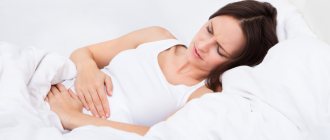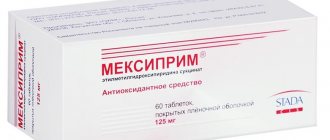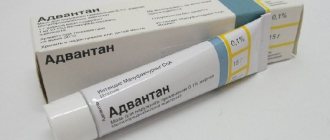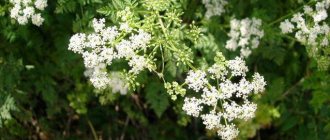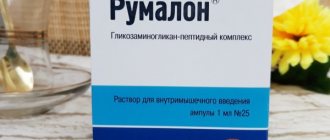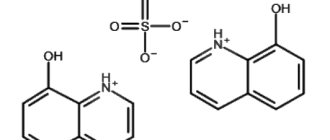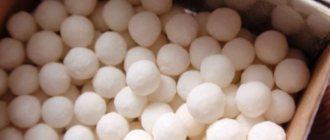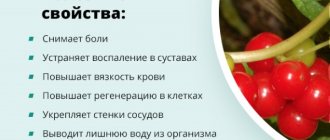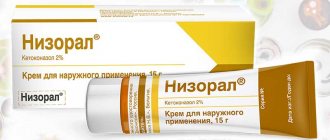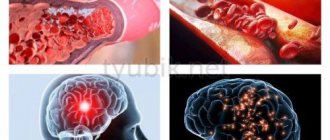Indications for use
Lycopodium is especially effective on the neurological mechanism. It normalizes blood circulation and restores peripheral impulse transmission. The herbal ingredients included in the multicomponent formula of the alternative medicine stimulate natural physiological processes.
Lycopodium is a homeopathy whose indications for use are extensive and varied. Often the remedy is used in cases where conservative treatment with classical medications does not give the expected result.
Lycopodium is prescribed for:
- acute respiratory diseases of viral-bacterial origin;
- chronic bronchitis and asthma;
- rhinitis not accompanied by a disorder of olfactory function;
- gouty disease;
- spasmodic state of muscles;
- rheumatic damage to smooth muscle fibers;
- benign hyperplasia of the skin.
Lycopodium demonstrates good clinical efficacy in numerous dermatological destructions. These include psoriasis, eczema, and lichen papules.
Lycopodium (Lycopodium)
Lycopodium (lycopodium) - this medicine is Hahnemann's precious gift to all humanity: it demonstrates and confirms the truth of the doctrine of potentization.
When should you take the homeopathic remedy Lycopodium?
Hahnemann writes about Lycopodium: “This pollen-like powder, yellowish and homogeneous to the touch, is obtained from the cones of the club moss, which grows in the forests of Russia and Finland. By the end of summer, the cones dry out and then open."
“If you throw the powder into a fire, it bursts into flames. In addition, they coat the pills with it so that they do not stick together. Moss moss pollen is sprinkled on abrasions in the folds of the skin to protect them from friction when walking. Pollen floats on the surface of the water without dissolving in it, has no taste or smell, and in its original, natural state has virtually no effect on human health...”
“This remedy has remarkable medicinal properties, which are only revealed when the spores of the moss moss are subjected to the procedure of rubbing and shaking.”
“The effects of a moderate dose last from forty to fifty days. The medication can be repeated after an intermediate use of another antipsoric drug, but the second dose is less effective than the first.”
“Being indicated homeopathically, this medicine is especially effective after Calcarea carbonica has exhausted its action...”
Kent says: “Although Lycopodium was considered an inert substance and was considered suitable only for the manufacture of allopathic pill coats, Hahnemann dynamized the moss and thus turned it into a very useful medicine. This is an outstanding monument to the founder of homeopathy. Lycopodium has a profound effect on the vital force... There is nothing in the human body that is not influenced by this powerful drug...”
This inert, “non-wet”, highly flammable powder was widely used in the fireworks industry. When moss spores are rubbed, oily compounds are released from them. To obtain the original drug, which has a unique and powerful healing effect, at least two hours of thorough rubbing of the spores with milk sugar is required.
Let us try to give a brief description of the Lycopodium picture, including the most essential characteristics that are necessary for the successful use of this remedy.
Lycopodium is one of our outstanding polychrests. Although this medicine is not always recognizable at first glance, a few simple questions will allow you to immediately “take the right lead.”
First of all, you need to ask what time of day the patient feels worse. In response you will hear: “In the afternoon, at 16 o’clock or from 16 to 20 o’clock.” Having discovered that the patient corresponds to the Lycopodium type, you continue the questioning in the right direction.
Kent says: "Poor Paul Dombey should have been given Lycopodium, but Dombey the father did not know about it and lost his son."
The Lycopodium patient is well developed intellectually, but the same cannot be said about his physical development. Such a person often looks sickly and thin, and the thinness especially affects the upper body. Transverse and longitudinal folds on the forehead; redness of the nose or cheeks after lunch, which causes great discomfort to the patient.
The Repertory has a small but very useful section called “Fear of Waiting.” It is well known that Gelsemium and Argentum nitricunr have this symptom, but Lycopodium also has it, as do a number of other remedies.
Many years ago, a very experienced homeopath told me about the mental characteristics of the “tmopodia” personality. He explained Lycopodium's fear of waiting as follows. Suppose this person has to meet with his shareholders or voters and give a speech to them. At the same time, it seems to him that he will get confused in his words, stammer, and forget to say the main thing; he constantly thinks only that complete failure awaits him. Finally, the “day of judgment” comes... So what? He rises to the podium and delivers a fiery speech with happy self-forgetfulness; Returning to his place, he feels confident that this was the best speech of his life. The words flowed easily and naturally; Not only did he not forget anything, but he even allowed himself some very witty improvisations. However, on the eve of the next meeting, he experiences the same fear and... again copes with his task brilliantly, since this person is a typical Lycopodium.
Further, the Lycopodium patient desires privacy, but he must also know that there is someone else in the next room, since he is afraid of loneliness! In the heading “Desire to be alone” Lycopodium is in italics, and in the heading “Fear of loneliness” it is in bold. Of greatest interest are the medications in bold that appear in the headings with opposite symptoms and.
The pathogenesis of Lycopodium describes many fears - fear of loneliness, crowds, darkness, death, ghosts, people.
Lycopodium causes a wide variety of dyspeptic disorders. Here it competes with Carbo vegetabilis and China and is considered the most important remedy for flatulence. The Lycopodium patient will complain at the reception that her stomach has long been “inflated like a drum,” and therefore she must wear loose clothes. After eating, the stomach is so distended with gas that it seems as if it would burst; The pressure and tight clothing are completely unbearable. Or, experiencing an acute feeling of hunger, she eats a few spoons of food and ends the meal there, as she feels full and bloated. Or, despite hunger, the stomach seems “full to capacity.” Lycopodium is shown in bold both in the heading "Easy satiety" and in the headings "Hunger in the afternoon" and "Hunger in the afternoon with a feeling of fullness and distension of the stomach."
The Lycopodium patient's food cravings mainly concern sweets and hot drinks. He also likes oysters, which can be difficult to tolerate.
Aversion to coffee and meat.
It is well known that Lycopodium is a right-handed medicine; the painful process spreads from right to left and from top to bottom.
There are a number of important urinary symptoms in the pathogenesis of Lycopodium. Red sand in clean, clear urine; acrid, irritating urine... hence you may give Lycopodium to a newborn baby who has red sand on his diapers; irritation of areas of skin exposed to urine. You can cure nephritis and swelling with this remedy.
As we have already said, Lycopodium corresponds to a person with a well-developed intellect and at the same time experiencing uncertainty in his own abilities. During illness, there is a decrease in mental abilities and confusion of thinking. Memory loss. Uses incorrect words and syllables. Makes spelling mistakes when writing, misses words or letters. Knows that “I” is the last letter in the alphabet, but cannot remember its name. If the patient's condition continues to worsen, he will lose the ability to read; can write whatever he wants, but is unable to read what is written.
My colleagues have told of the successful administration of Lycopodium to writers who became completely incapacitated after suffering from influenza; intellectual disorders arising after influenza often require the administration of Lycopodium, while neurotic ailments due to the same cause, bordering on insanity, require Scutellaria, and those that do not go away for a long time weakness and chilliness quickly give way to the effects of China.
There is not a single disease in the world for which this remedy would not be indicated, but only if we are talking about a Lycopodium patient. Toothache, skin rashes, worsening around 16:00. Prolonged pneumonia, in which the body temperature rises at 16:00 and falls after 20:00. Diphtheria, affecting first the right and then the left half of the throat. Or the inflammatory process in diphtheria first affects the choanae area and then moves down. Lycopodium also corresponds to post-diphtheria paralysis, when food and drink are poured out through the nose. Kidney diseases, accompanied by inflammation and redness of those areas of the skin that receive urine.
Two other symptoms may indicate this remedy: the right foot is cold, and the left one has a normal temperature; burning pain, as from hot coals, in the interscapular area. These symptoms are often very useful, but only as a final argument in favor of a drug diagnosis.
So, if there is a deterioration in health in the afternoon, deterioration at 16:00;
worse between 4 and 8 p.m.; desire for hot drinks; desire for sweets; increased stomach acidity; bloating and characteristic urinary symptoms, you will not be wrong if you choose Lycopodium.
Leading symptoms
- Psyche. Fear of people, loneliness; irritability and melancholy
- Cries all day, can't calm down. Tearfulness intensifies between 16:20.
- Impressiveness: cries even when thanked.
- Feeling full of life, especially in the morning in bed.
- Amorousness.
- Impressiveness, irritability: grumpiness and anger upon awakening. Gets angry easily; cannot tolerate objections and quickly loses his temper.
- Ailments due to fear, anger, disappointment or hidden annoyance - Hypersensitivity to pain. Beside myself with pain.
- Uses incorrect words and syllables when speaking.
- Everyday affairs are confusing.
- Feeling of anxiety in the 6th pit of the stomach.
- Head. Dizziness in the morning during and after getting out of bed; the patient staggers forward and backward.
- Sensation of pulsation in the brain when throwing back the head.
- Throbbing headache after each attack of coughing. Tearing pain in temples and chest when coughing.
- Pain in temples, as if head were caught in a vice; the pain intensifies during menstruation.
- Rush of blood to head on waking.
- Excessive hair loss; early gray hair.
- Glazh Excruciating pain with a feeling of dryness of the eyeballs and sticking together of the eyelids at night
- Styes, mainly in the area of the inner corners of the palpebral fissures.
- Ulceration and redness of eyelids.
- Deterioration of vision at dusk: cannot see anything that is on the table.
- Noise, crackling, etc. in the ears
- Hearing loss due to otorrhea.
- Eczema of the ears with the formation of thick crusts and cracks.
- Severe runny nose, accompanied by swelling of the nose.
- Runny nose with congestion, causing the patient to be unable to breathe at night.
- Complete nasal congestion: the child stops breathing during sleep; often pauses reach fifteen seconds, even when the mouth is open.
- Fan-shaped movements of the wings of the nose.
- The face is yellowish-gray.
- Convulsive twitching of facial muscles.
- Pain in teeth when chewing and touching.
- Numerous blisters on the tongue. Ulcers on and under the tongue.
- Feeling of a ball coming to the throat.
- When swallowing, the throat feels too narrow; it is impossible to swallow anything: Food and drinks are poured out through the nose.
- Excessive appetite, accompanied by bloating.
- Hunger returns immediately after eating, although the stomach and abdomen are full and distended.
- The patient cannot eat at all: she is always full, there is no appetite; no matter what you eat, nothing is absorbed; vomiting is possible.
- Very quick satiety and strong thirst.
- Fullness and bloating of the stomach, occurring immediately after eating.
- Loss of appetite after one or two spoons of food: heaviness in the stomach after eating.
- Sour belching without sour taste in the mouth; sensation as if acid were eating away at the stomach.
- Incomplete burning belches that rise only to the level of the pharynx, causing a burning sensation that does not go away for several hours.
- The epigastric region is extremely sensitive to touch and tight clothing.
- The patient feels that food is being digested too slowly.
- Discomfort in the stomach after eating a small amount of food.
- Stomach cramps combined with severe bloating.
- Pressure in the stomach, as from eating too much.
- Pressure in the stomach, with a feeling as if it were too distended, in the evening, after eating a small amount of food.
- Pressure and heaviness in the stomach after eating a small amount of food in the afternoon.
- Pain in the epigastric region caused by kite.
- The patient cannot afford to eat a hearty meal, as this causes unpleasant, painful sensations in the liver area.
- Pressing pain in the region of the liver when breathing.
- Stinging, pressing pain, as if from a blow, in the right hypochondrium, aggravated by touch.
- The liver is painful to the touch.
- Pain in the spruce hypochondrium in the afternoon.
- Severe gallstone colic.
- Ascites as a result of liver damage caused by alcohol abuse.
- Heaviness in the left flank of the abdomen, which does not interfere with breathing, but is constantly felt when walking, sitting and lying down.
- The abdomen is distended with gas. The release of gases brings relief.
- Rumbling in the stomach.
- Flatulence, bloating of the entire abdomen after stool.
- A large amount of gas accumulates in various parts of the abdomen; bloating can be felt in the hypochondrium and even in the back, ribs and chest; painful bloating and rumbling in the abdomen, always relieved by airy belches.
- Fullness, bloating and abdominal pain immediately after eating. Painful abdomen combined with difficulty passing gas.
- Sensation as if something were moving up and down in the stomach and intestines. [Compare with Crocus, Thuja, Sanicula.)
- Right-sided inguinal hernia.
- Painful spasm of the anus.
- Frequent spasms in the rectum; rectal prolapse when passing hard stools.
- Hemorrhoids, painful to touch.
- Severe tendency to irritate the skin in the anal area; slight bleeding in the anal area.
- Itchy, weeping rash and soreness in the anal area.
- First, stool is released in the form of lumps, then soft feces.
- Aching pain in the kidney area before and after urination.
- Red sediment in urine.
- Red or reddish-yellow sand in the urine.
- Cloudy, milky urine with foul-smelling purulent sediment. Predisposition to stone formation.
- Renal colic, especially right-sided: pain spreads along the ureter into the bladder.
- Urge to urinate: the patient has to wait a long time before urine begins to be released; or urination is generally impossible, while the patient feels trampling on the bottom and supports the stomach with his hands.
- Night cough, painful in the stomach and diaphragm, mainly before sunset.
- Intractable cough in the evening, before going to sleep, accompanied by a sensation as if the larynx was being tickled with a feather, and scanty expectoration.
- Tickling cough, as if sulfur vapor had entered the larynx.
- Difficulty breathing, as if inhaled sulfur vapor.
- Gray, salty-tasting sputum.
- Shortness of breath during sleep due to the slightest exertion.
- Feeling of tightness and rawness in the chest.
- Sharp, stabbing pain in the left side of the chest during inspiration.
- Hering: "Hydropericardium."
- Back. Burning, as if from hot coals, in the interscapular area.
- Severe back pain, relieved by urination.
- One foot is hot, the other is cold.
- Desire to go out into the open air.
- All symptoms worsen at 4 p.m.; at 20 o'clock the state of health improves, although the patient complains of weakness.
- Headache, cough, fever, chills, etc. intensify between 16 and 20 hours.
- Nervous excitement; physical and mental exhaustion. Nervous exhaustion.
- Hunger on waking at night.
- When waking up, he gets angry, fights, scolds; or wakes up with fear; not a refreshing sleep.
Many years ago I was asked to counsel a five-year-old boy. Despite such a young age, he played excellent cricket. Recently, the baby suffered from frequent urge to urinate. I watched him play cricket on the sand with other boys and literally run into the bushes every few minutes to urinate. When asked about the possible causes of the disease, the parents shrugged their shoulders in bewilderment. During the conversation, I identified several “lycopodium” symptoms, one of which arose quite recently - the boy began to “wake up in the morning in a very bad mood,” while he became angry and noisy. Lycopodium quickly cured him, eliminating, among other things, morning irritability... Almost all the symptoms of Lycopodium are worse in the evening and better in the morning, with the exception of what we saw in this case, namely, “the patient wakes up in a bad mood.”
This case is a striking example of the category of puzzles, the successful resolution of which greatly enriches our knowledge of drug pathogenesis.
Speaking about a symptom, who writes: “If this symptom is expressed clearly enough, then it does not matter through what organs or tissues the symptoms of a painful disorder will manifest themselves in children or young people, I dare to say that the entire totality of pathological phenomena in this case will correspond picture of Lycopodium. Dr. David Wilson was an eminent homeopath, and he does not say: “Whenever the wings of the nose make a fan-shaped movement, give Lycopodmm,” but prefers to speak carefully: “I venture to say that the totality of the pathological phenomena in such a case will correspond to the Lycopodium picture.
Description and characteristics of the homeopathic remedy Lycopodium (lycopodium).
This symptom usually occurs when the respiratory organs are affected. For example, a description of the classic picture of Lycopodium pneumonia is as follows.
Furrowed brow.
Fan-shaped movements of the wings of the nose.
Body temperature rises daily between 16:00 and 20:00, then the temperature drops. In case of prolonged pneumonia, the last symptom directly indicates Lycopodium, the administration of which leads to a rapid recovery of the patient. Kent talks about the use of this remedy for pneumonia “at the height of clinical manifestations and hepatization, when the following symptoms are present: wrinkled face and frowning eyebrows, flaring of the wings of the nose and scanty secretion of sputum. Predominant damage to the right lung; if we are talking about bilateral inflammation, then the right lung is affected first.”
In diphtheria, the disease begins in the right side of the throat and then spreads to the left; at the same time, the patient does not have bad breath and a characteristic coating on the tongue, which “call for help” from Mercurius.
Lycopodium is one of the outstanding polychrests, that is, extremely widely used drugs. However, the leading symptoms mentioned above are invaluable for our school, as they indicate those vulnerable places in the body that are primarily subject to destructive and healing influences.
As already mentioned, this remedy is especially suitable for people with well-developed intellect, whose mental energy predominates over their bodily energy. Therefore, Lycopodium can have both destructive and healing effects on the human psyche. It causes a weakening of memory, and at the same time can be remarkably helpful in cases where, due to illness or overwork, the patient complains of confusion in the head, mental lethargy and inability to think.
And one more thing: both the destructive and healing powers hidden in this medicine have a powerful effect on the digestive and urinary organs.
I remember a patient who complained of severe bloating for many days. It seemed to her that her stomach could burst at any moment under the pressure of accumulated gases, and therefore she avoided wearing tight clothes. Taking Lycopodium was a complete success.
Nat says. Lycopodium, Sulfur and Calcarea carbonica form the leading trio of Ganemaia antipsorics. All of them have a very deep effect. Lycopodium has a beneficial effect on patients of any age, but especially on the elderly and children... on persons with a lively intellect, but weakly developed muscles, on thin people... The subject of Lycopodium has a sickly, haggard appearance; his face is covered with premature wrinkles; looks older than his age. The child is weak, with a well-developed head, but a puny, sickly body... Lycopodium is one of the three leading remedies for flatulence, the other two being Carbo vegetabilis and China... remember that while China produces bloating of the entire abdomen, Carbo vegetabilis prefers the upper , and Lycopodium - its lower part...”
“In Lycopodium constipation predominates and, like Nux vomica, there may be a frequent and ineffectual desire to stool, but while in Nux vomicay this desire arises from irregular peristaltic activity, in Lycopodium it seems to be associated with spasmodic constriction of the anus. , which prevents bowel movements and causes severe pain...”
“Lypocodium has often saved advanced cases of pneumonia from developing into consumption...” We have already given characteristic indications for this: a wrinkled forehead, fan-shaped swelling of the wings of the nose, increased fever at 16-20 hours, etc.
Lycopodium is known as a "chill" remedy, yet it is one of several remedies that appear in the Repertory under the heading "Amelioration from Cold." But in general Lycopodium is relieved by heat, hot drinks, etc.
Now let's turn to Kent. “In the Lycopodium patient, the thinness is more pronounced in the upper part of the body, while the limbs appear well nourished... The Lycopodium patient cannot eat oysters. They cause him a wide variety of ailments: headache, pain in the ovaries, cough, etc. Apparently oysters are poison to such a person, just as onions are poison to the Thuja patient. The Acidum oxalicum patient cannot eat strawberries. If you encounter a patient who becomes ill from strawberries, tomatoes or oysters, and you do not have a homeopathic medicine cabinet on hand, remember that a piece of cheese can help with the normal absorption of these foods.”
“Eruptions, and sometimes ulcers and abscesses of Lycopodium, are characterized by amelioration from cold. Cooling the affected part of the body improves the condition of the Lycopodium patient in the same way that warming improves the well-being of the Arsenicum patient... Usually, the older members of the family, trying to help the sick relative, apply hot compresses or lotions to the affected part of the body, but this only aggravates the suffering of the Lycopodium patient.”
"Fatigue. Mental fatigue, chronic fatigue, forgetfulness, aversion to everything new, a new position; disgust for one's own work."
“Silence, taciturnity: desire to be alone. If there are two adjoining rooms in the house, the Lycopodium patient will retire to one of them, but will feel calmer if there is someone else in the next room. This is the peculiarity of the mental state of Lycopodium...”
“Having met a friend, the Lycopodium patient often loses self-control and cries... An unusual sadness comes over him with tears when he is given something. The slightest joy makes him cry... cries even when they thank him.”
“The left foot is cold, the right foot is warm... red sand in the urine; sediment in urine resembling red pepper..."
Regarding sore throat and diphtheria, and the characteristic spread of the inflammatory process, Kent says that “the Lachesis patient is relieved by cold, and when trying to drink something warm, he has spasms in the throat; while the Lycopodium patient is relieved by warm drinks, although sometimes he gets better from cold drinks.” It is important to remember this, otherwise you may refuse this remedy where it is indicated.
In order to work quickly and efficiently, especially with a large flow of patients, you need to become well acquainted with a couple of dozen tools, and then, with a quick glance at the patient and asking a minimum number of questions, you can easily make the right prescription. Such medicines are Sepia, Sulfur. Lycopodium, Calcarea, Silicea, Natrium muriaticum, Arsenicum, Bryonia, and in acute cases - Aconitum, Belladonna, Bryonia, Rhus, Gelsemium, Baptisia and several other important remedies that are simply impossible to do without. Each of the listed medications has clear distinctive characteristics, a good knowledge of which will help you avoid offensive mistakes. To ensure that the reader can easily grasp the essence of each homeopathic remedy, we often resort to repetition and try to present the most important symptoms and indications. Having such a medicinal arsenal, it is possible to make effective homeopathic prescriptions in most cases of common diseases.
Lycopodium in the treatment of aneurysm
Dr. Hughes mentions one very interesting indication. He says: “Lycopodium has been recommended by some doctors for the treatment of aneurysms, but until recently I did not attach much importance to it. In one case, which was supervised by Dr. Madden and your humble servant, it was, in all likelihood, an aortic aneurysm, which ceased to be detected after taking this drug, prescribed on the basis of general complaints. Some time later I witnessed a striking cure by this remedy of a carotid aneurysm in an elderly lady who had sought treatment for dyspeptic disorders, which was the basis for the prescription of Lycopodium. The shooting pains at the site of the aneurysm disappeared within the first three days of taking Lycopodium; and after two weeks the enlarged section of the artery was reduced by half; Since then, the size of the aneurysm has not changed, and it has not caused the patient any pain or any other inconvenience.”
Compound
The natural medicinal composition is modeled on the basis of a tincture of clubmoss spores. This biologically active plant ingredient is saturated with acids, terpenes, and other beneficial substances.
Thanks to the tincture of clubmoss spores, Lycopodium has a multidirectional therapeutic effect on the body. Lactose and ethyl alcohol are introduced into the chemical formula of the drug as auxiliary components.
The first is a disaccharide consisting of glucose and galactose. It serves as a nutrient substrate for the development of beneficial intestinal microflora - lacto- and bifidobacteria.
Milk sugar improves the absorption and assimilation of calcium, which is necessary for the formation and normal functioning of the musculoskeletal system. Lactose, when taken orally, gives salivary fluid its characteristic viscosity.
This improves the dissolution of food products and increases the sensitivity of the taste buds of the oral cavity. Another auxiliary component of Lycopodium is ethyl alcohol, contained in low concentrations, which allows the drug to be prescribed to children.
This chemically aggressive compound has pronounced antiseptic properties and the ability to inhibit the vital activity of pathogenic microorganisms, inactivating their proteins and dissolving the cell membrane.
Ethyl alcohol exhibits high activity against viral agents, gram-positive and gram-negative pathogenic bacteria. Some indications for the use of Lycopodium are associated with such properties.
The main physiologically active component of the homeopathic remedy, clubmoss spores are a complex biochemical complex of plant origin.
Composition of pollen tincture:
| Natural element | Properties and action |
| Stearic acid | It has softening characteristics and protects the skin from the influence of adverse environmental factors. |
| Linoleic acid | An essential component of cell membranes, not produced in the body. Performs a barrier function, preventing the penetration of viral agents. Participates in the metabolism of fats, improves the absorption of proteins supplied with food. |
| Palmitic acid | Part of phospholipid compounds. An important source of energy. Activates collagen production and is involved in the renewal and regeneration of epidermal tissue. |
| Oleic acid | A monounsaturated lipid compound that increases the sensitivity of cellular receptors. Blocks some of the dietary cholesterol, reducing the risk of vascular thrombosis. Helps immunocompetent neutrophil cells identify and suppress inflammatory processes. Positively affects neurotransmitter regulation. |
| Myristic acid | Has hypercholesterolemic properties. Has bactericidal and fungicidal effects. Potentiates the pharmacological effect of antibiotics in the gastrointestinal tract, increasing the clinical effect of therapy. |
| Hexadienoic acid | A safe preservative that extends the shelf life of the medicine. Participates in the formation of the myelin sheath and has neuroprotective properties. |
| Terpene | Physiologically active substance with antiseptic and antispasmodic action. Included in some classic medications - Validol and others. |
Lycopodium is a homeopathy whose indications for use include many functional disorders. A natural drug with a unique chemical formula and a balanced component composition is prescribed for sore throat, tonsillitis, and other inflammatory diseases of the upper respiratory tract.
Composition and concentration
The drug Lycopodium consists of a tincture of pollen from a herbaceous plant - moss moss, which is collected in the forests. This remedy is sometimes included as a component in other homeopathic preparations. Available either as a tincture or as granules. In the tincture, the active ingredient is diluted in ethyl alcohol, and the granules contain milk sugar. In addition to the composition and form of release, concentration is important in homeopathy - a more highly diluted drug is more effective and efficient. For example, “Lycopodium 200” is prescribed for serious diagnoses, diseases that occur in a severe form, when the patient complains of poor health and pronounced symptoms.
"Lycopodium 30" is prescribed for pathology of moderate severity, when pronounced symptoms are observed, but in general the patient feels satisfactory. This dosage is most often found in prescriptions. But “Lycopodium 6” is suitable as a prophylactic for pathologies on which the medicine has a beneficial effect.
Release form
The drug is produced in the form of an ethyl-based alcohol solution for oral administration. It supplies pharmacies in 50 ml tinted glass bottles.
The approximate price of the drug with the concentration of the active substance C200 is 140 rubles. Another form of release, intended for children, is a small white homeopathic tablet.
Lycopodium
The medicine is sold in plastic jars with a hermetically sealed removable lid. The standard volume is 10 g. This form of release is called homeopathic cereal. The drug in the form of dragees comes in concentrations of C16 and C30. Both options cost the same – 83 rubles.
Chemical composition
Lycopodium grows mainly in pine forests; its stem and branches are densely covered with small, pointed, linear-lanceolate leaves that resemble scales. Spikelets on spore-bearing branches ripen in July-August and, thanks to the spores that have ripened in them, acquire a yellowish tint. Only mature pale yellow spores of the plant are used for medicinal purposes. The spikelets are carefully cut and dried, and then after sifting, lycopodium powder is obtained - float pollen. The chemical composition of the spores is presented:
- Fatty oil with a content of up to 50%, including stearic, aroquinic, palmitic, dihydroxystearic, linoleic, oleic and myristic acid;
- Carotenoids;
- Phytosterol;
- Sporonine is a polymer terpene;
- Proteins;
- Glycerin;
- Sugars;
- Minerals.
The branches of lycopodium also contain alkaloids - clavatine, lycodin, lycopodine and others.
Pharmacodynamics
Lycopodium is a universal homeopathic remedy with anticonvulsant, diuretic, and neuroprotective effects. The drug normalizes digestive function, improves metabolic processes, and promotes the synthesis of protein proteins.
Analgesic and bactericidal effects allow it to be used for inflammation, colds, and chronic pathologies of the respiratory system. Lycopodium normalizes sleep, improves appetite, and increases nerve conductivity.
The pharmacodynamic properties of the homeopathic drug are based on the ability of the matrix tincture of clubmoss to penetrate deeply into the tissues of internal organs and attach to cell membranes, intensifying metabolic processes in them.
The physiologically active component of the medicinal composition eliminates inflammation of the urinary tract and reproductive system caused by the activity of pathogenic microorganisms.
It tones the smooth muscles of the intestines, improving the breakdown and digestion of foods. Lycopodium allows you to quickly get rid of dyspepsia and painful symptoms of cirrhosis.
Who is Lycopodium for?
Constitutional type of lycopodium - people who seem older than their age. They are characterized by a narrow, compressed chest and a large belly. The reason for this is usually that the main ailment of a person lies in the stomach.
Patients are characterized by poor development of leg muscles, they often have varicose veins, and their ankles swell. The skin tone of the face is yellowish, there are early deep wrinkles. In general, the deterioration of the body is noticeable at first glance. The eyes stand out - they are very bright, revealing a thinking and intelligent person. Often, the constitutional type of lycopodium has a nervous tic.
Lycopodium is a right-sided homeopathic remedy.
Pharmacokinetics
When taken orally, the active component and active substances of the homeopathic remedy are absorbed in the lumen of the small intestine and gastric cavity. They easily overcome the enterological barrier and are absorbed into the systemic circulation.
The maximum plasma concentration is achieved after 30-40 minutes. after oral administration. The bioavailability of the drug is 95-98%. The physiologically active substances of the drug are metabolized in the liver under the influence of its enzymes.
Lycopodium binds to blood proteins by 15%. Homeopathy is easily removed from the body without causing intoxication even with prolonged use. Indications for use include treating impotence in men and increasing libido in women.
Elimination occurs primarily through the kidneys and urinary tract. Approximately 10% of the medicinal composition is found in fecal matter. The natural ingredients of the herbal medicine do not accumulate in tissues, being almost completely dissolved in the biological fluids of the body.
Doses and use of lycopodium
The homeopathic drug Lycopodium in small doses can have a positive effect on the affected organs. However, in what dilution you should take it, as well as understand in what proportions you can take such a well-known drug as homeopathic arnica, the doctor will determine. Lycopodium 200 is considered one of the most effective in homeopathy. High dilutions are almost unanimously considered preferable. However, dilutions of 12 and 30 are popular among prescriptions. It is believed that the remedy has a particularly beneficial effect on children and the elderly. The homeopathic drug Lycopodium can be prescribed in the following cases:
- Digestive disorders, dyspepsia, liver cirrhosis, hemorrhoids; Stones in the liver, kidneys; Diseases of the respiratory system, such as chronic bronchitis, runny nose; Night blindness; Sexual weakness; Inflammation of the parotid gland in scarlet fever. The ability to simultaneously influence the peripheral and central nervous systems determined the use of the homeopathic remedy Lycopodium in the treatment of nervous diseases. It helps to heal severe headaches that occur in the crown area, as well as disorders and even loss of speech. Skin diseases, in particular lichen, are also susceptible to the effects of the drug.
Lycopodium in homeopathy is classified as a right-sided remedy. This means that the right side of the human body is predominantly affected. In particular, this is the right ovary, liver, right kidney. However, this does not mean that the drug will not have any effect on the left kidney. It’s just that in the case when an organ located in the right half of the human body is affected by the disease, among similar drugs the doctor may choose lycopodium precisely because of this characteristic.
Application
Lycopodium is taken exclusively orally. An alcohol solution is intended for adults. The dosage is calculated individually depending on the nature and severity of the pathological process.
It is necessary to observe intervals with meals. The drug can be used as a drying powder to treat skin wounds with bacterial infection. Lycopodium eliminates diaper rash, treats weeping eczema, and relieves allergic itching.
For children under 18 years old
Homeopathic cereals with a sweetish taste are intended for minor patients. The dragee must be dissolved until completely dissolved. The homeopathic doctor determines the dosage individually, depending on the purpose of using the medicine and the child’s body weight.
The average therapeutic dose of the drug is 5-6 granules for a single dose. Lycopodium in the form of homeopathic cereal is indicated for children from 3 years of age.
When determining the daily dose, the doctor takes into account the child’s age and individual characteristics of the body. Clinical indications are taken into account.
Lycopodium is often prescribed to children for acute respiratory infections and scarlet fever - an infectious process provoked by a hemolytic streptococcal agent of class A. Depending on the desired therapeutic effect, the degree of dilution of the active substance is selected - C16 or C30.
For prevention, the doctor may prescribe a drug with a reduced concentration of C6. The duration of treatment varies from 2 weeks to a month. The frequency of taking homeopathic medicine is 2-3 times a day at equal time intervals.
For adults
Adult patients are prescribed Lycopodium in the form of an alcohol tincture. This remedy relieves pain, has a calming effect, and relieves inflammation of tissues and joints.
For adults, dosage is calculated based on individual clinical indications. The alcohol tincture can be consumed pure or diluted with water. For pain in the bladder and inflammation of the urinary canals, it is recommended to mix homeopathic medicine with milk sugar in a ratio of 1:10.
To eliminate stomach colic and spasmodic phenomena in the intestines, 1 tbsp. Lycopodium is diluted in 500 ml of boiled water. The tincture is consumed 2 times a day, morning and evening.
The product has diuretic and analgesic properties. It makes sense to take it for alcoholic polyneuropathy. Lycopodium in the form of an alcohol tincture reduces liver intoxication and restores intestinal motility.
For urolithiasis, exacerbation of cystitis, inflammation of the gallbladder, take the medicine 1 tsp. every hour until painful symptoms disappear. The tincture helps with hepatitis and cholecystitis.
Lycopodium is a homeopathy whose indications for use include an extensive list of functional disorders of internal organs and pathological conditions. In case of chronic alcoholism, the tincture can be used to induce a gag reflex in order to cleanse the stomach.
For pregnant
It is highly undesirable for women carrying a child to take this homeopathic medicine. No studies have been conducted on the teratogenic properties of the drug and the effect of its physiologically active components on intrauterine development.
Active and auxiliary substances are able to overcome the hematological barrier and penetrate into breast milk.
Due to the high risk of complications, pregnancy and lactation are included in the list of contraindications to taking homeopathic remedies.
For the elderly
Elderly people are prescribed Lycopodium in the form of a homeopathic cereal. The standard therapeutic dosage is used - 5-6 tablets per dose, 2-3 times a day.
The drug effectively eliminates arthritic symptoms, insomnia, and irritability. Elderly patients should take it for prophylaxis after a myocardial infarction or hemorrhagic stroke.
Lycopodium improves the condition of arteries, normalizes blood pressure, and slows down the aging process by enhancing cellular regeneration. The drug is effective for vascular spasms, hemorrhoids, and heart failure.
It stimulates nervous activity and has a mild sedative effect, normalizing sleep function. It is often prescribed to older women at the onset of menopause and during postmenopause.
Dosages and course duration
It is not recommended to select and take homeopathic medicines on your own.
Only contacting a specialist - a hepatologist - can guarantee the maximum therapeutic effect. In this case, the doctor must have a higher medical education and a license that gives the right to engage in such activities of a therapeutic nature. When prescribing, the hepatologist will be able to take into account a lot of factors and give the patient the necessary information about the intake, possible side effects, and the duration of the course. Typically, the prescribed number of Lycopodium granules for a single dose is placed under the tongue. For complete absorption into the hypoglossal vein, they must be kept until completely dissolved. The alcohol tincture is diluted in water in the proportion specified by the doctor. A couple of tablespoons of the diluted product are also kept in the mouth for some time, up to one minute, and only then swallowed. But you have to do it in the morning until you decide to brush your teeth with mint paste.
Contraindications
Lycopodium is not prescribed to children under 3 years of age. A homeopathic remedy has a minimum number of absolute clinical contraindications and situational restrictions on use.
It is advisable to stop taking the drug during pregnancy, especially in the first trimester. You should not use the medication during lactation due to its ability to pass into breast milk.
Absolute contraindications to the use of Lycopodium:
- Acute renal failure. This pathological condition worsens the pharmacokinetic characteristics of the drug.
- Tendency to immediate anaphylactic reactions in children. This is especially true for allergies to products of plant origin.
- Individual intolerance to the components of the chemical formula of the drug. Hypersensitivity to the contents of the medicinal composition is fraught with the development of numerous side effects.
- Kidney dysfunction associated with inhibition of enzymatic processes. These include cirrhosis, hepatitis, cholestasis.
Patients with type 2 diabetes mellitus should take homeopathic medicine with extreme caution. Lycopodium is not prescribed for glucose-galactose malabsorption syndrome due to the milk sugar it contains.
The drug in the form of an alcohol tincture should not be taken for gastric ulcers. Do not use Lycopodium for internal bleeding. Individual adjustment of the daily volume of the drug is required for congenital autoimmune pathologies.
Contraindications and side effects
The drug is strictly prohibited for pregnant women and nursing mothers. In addition, such therapy is not suitable for people who are intolerant to the components of its composition. If we are talking about prescribing to a child, then, according to the instructions, use is possible for children over three years of age.
It is important to know that the remedy, like any representative of homeopathy, has one important feature. In most cases, after the first dose, an active reaction of the body occurs - patients experience:
- nausea;
- headache;
- weakness;
- general malaise.
The symptoms against which the drug was prescribed and taken may manifest themselves more actively. This condition can last up to 6 hours. After this, the patient's condition stabilizes. Later, the dynamics of recovery become rapid - the patient feels significant relief in his health. But if this does not happen, you should immediately consult a doctor.
But in most cases, Lycopodium is tolerated easily and without complications.
Overdose
Lycopodium is a homeopathy, the indications for use of which include the use of a homeopathic medicine for headaches localized in the parietal region of the temporal part, speech disorders, and increased irritability. The drug has a high established safety profile.
Even if the maximum clinically appropriate daily dose is regularly exceeded, signs of drug intoxication are not detected. The active ingredients of the drug do not accumulate in the tissues of the body, but are excreted in full within 3-4 hours after administration.
In the practice of using Lycopodium, not a single case of overdose has been recorded. Nevertheless, you should not exceed the individual norm calculated by the homeopathic doctor. This does not enhance the therapeutic effect and increases the risk of dyspeptic symptoms.
Lycopodium: reviews
Based on people's reviews of Lycopodium, this drug can be designated as a homeopathic remedy of prolonged action.
It does not have an immediate effect and does not give immediate results. However, Lycopodium gradually acts, leading to an improvement in the condition.
For many patients, this remedy is an indispensable assistant in the treatment of certain diseases. For people with allergies to medications, for the elderly and for children, Lycopodium has become a good and reliable assistant in carrying out therapeutic actions.
Advantages:
- Versatility Ease of use Easy to take Herbal base Low cost Availability of purchase
Flaws:
- Slow effectiveness Unpleasant taste Refusal from your favorite tea and coffee Inability to use mint and menthol substances, including toothpastes
Weighing all the pros and cons, we can come to a small conclusion that Lycopodium is a good drug for the treatment of many diseases. Its therapeutic effect often exceeds the effectiveness of medications.
Side effects
The use of homeopathy rarely leads to the development of unwanted reactions. Almost all of them are associated with hypersensitivity or biological immunity to the components of the drug.
At the initial stage of treatment with Lycopodium, an exacerbation of the symptoms of the disease is possible, which does not require discontinuation of the therapeutic course. This phenomenon is due to the body’s adaptation to new physiologically active chemical compounds.
After the end of the biological adaptation process, such effects disappear on their own. In some cases, nausea, vomiting, and dizziness may occur.
In children, short-term side effects are manifested by decreased appetite, general lethargy, or, conversely, increased nervous excitability, and bowel dysfunction. Allergic reactions include nasal congestion, skin rash without itching, and inflammation of the conjunctival membrane of the eyes.
Treatment of dyspepsia
Many people often experience indigestion due to various reasons. This is often associated with gastrointestinal diseases. The combination of various symptoms of indigestion is dyspepsia.
Symptoms of dyspepsia:
- Multiple and frequent belchings Feeling of bloating Loss of appetite Heartburn Vomiting and nausea Delayed digestion of food
Regardless of the causes of dyspepsia and the form of the disease, treatment includes the use of medications and folk remedies.
If clear symptoms of the disease occur, non-drug treatment methods should be used first, which include the following manipulations:
- Sleeping on a high pillow Refusal of tight belts, belts, corsets Healthy nutrition Refusal of fatty, smoked, sweet foods Refusal of sour juices and fruits Avoid physical activity on the abdominal muscles
Herbal teas based on chamomile, thyme and blackberry are very useful for dyspepsia.
When diagnosing and making a correct diagnosis, the doctor prescribes the necessary drug treatment.
Medicines for dyspepsia:
- Antidiarrheal Enzymatic Antispasmodics Acidity blockers Histamine blockers
The use of antibiotics may be necessary.
An excellent remedy for the treatment of dyspepsia is the homeopathic drug Lycopodium - a natural disinfectant and antispasmodic. Often this particular medicine is enough to achieve results.
From the proposed video, learn how you can improve the digestion process.
Lycopodium can replace drug treatment if necessary or be a good aid in complex therapy. But there is no need to self-medicate. Only a doctor can determine the causes of the disease and prescribe medications appropriate to the disease.
Storage conditions and periods
Lycopodium in the form of homeopathic grains is suitable for use for 3 years from the date of production. The alcohol tincture must be used no later than 24 months from the release date indicated on the label.
The drug should be stored at a temperature close to room temperature. Avoid exposure of the medicine to moisture, electromagnetic radiation and solar ultraviolet radiation. Do not allow the alcohol tincture to come into contact with heating devices and hot surfaces.
Lycopodium instructions: method of application
People who have aged prematurely are prescribed both Alumina and Lycopodium. Theoretically, I see no contraindications for prescribing Lycopodium as the first medicine if clear indications are identified.
Lycopodium gives excellent results in cases of calculosis. I will present several cases cured with Lycopodium. Only Lycopodium was suitable. Lycopodium 1 M three doses per day. Then a placebo was prescribed.
The drug is also effective against diseases of the digestive system and genital organs. This remedy is also effective for rheumatism, hemorrhoids, intestinal colic, vascular spasms and constipation. Lycopodium is suitable for patients who are characterized by frequent fatigue and increased fatigue, as well as a predisposition to lung and liver diseases.
Children who may be prescribed this drug are characterized by a reluctance to make contact with strangers, increased anxiety in an unfamiliar situation, fear of the dark and loneliness. These children's constant fears and worries can trigger the development of physical symptoms, including abdominal pain, constipation or diarrhea. In this case, the dosage of this drug for children is determined individually.
The drug is also contraindicated for women during breastfeeding. Attention! The description of the drug posted on this page is a simplified version of the official version of the annotation for the drug. The information is provided for informational purposes only and does not constitute a guide for self-medication.
Conditions for dispensing from pharmacies
Lycopodium is an over-the-counter drug. It is freely sold in pharmacies. The medicine in the form of a homeopathic pill can be given to a child to prevent seasonal respiratory diseases of viral origin.
The drug Lycopodium is a multi-purpose homeopathy with a unique component composition. It has no analogues. Considering the impressive list of indications for use, you can choose a classic medication to treat a specific functional disorder. But it is impossible to find a complete analogue.
Contraindications to treatment with the drug
It is also an excellent disinfectant and natural antibacterial agent. In addition, the product perfectly normalizes sleep and improves appetite, improves the functioning of the nervous system. The pharmacological effect of the drug is based on the penetration of dynamized particles into the internal organs of a person.
Thanks to this effective drug, you can get rid of constipation and urinary retention. With the help of the medicine it is possible to relieve spasms of the muscles of the genitourinary system and the smooth muscles of the intestines. The work of all organs and systems is normalized. This drug is prescribed in many areas of medicine.
Helps remove stones and sand from the kidneys. The medication can be taken by women during menopause. The medicine will also come to the aid of hyperactive children. Moss moss spores, unlike other medicines, do not contain toxic substances. Therefore, no adverse reactions occur during treatment. This is the period of gestation. It is not advisable to use the product during lactation.
Doctors do not prescribe medicine for kidney and liver pathologies. The characteristics of the patient’s body, his age and clinical indications are taken into account. In most cases, it is worth taking a few granules of the medication two or three times a day. The product should be placed under the tongue until completely dissolved. There is no need to cancel treatment. Within a few days, all unpleasant sensations disappear.
Indications for use, reviews, correct dosage - all this information should be considered before taking it. Indications for use, dosage, possible side effects - the doctor will tell you about all this. The medicine is available in the form of granules and alcohol tincture.
Sources:
http://ogomeopatii. ru/salus/likopodium-v-gomeopathy
http://vekzhivu. com/article/2037-gomeopaticheskii-preparat-likopodium-instruktsiya-i-otzyvy
http://novagazarda. ru/pokazaniya-k-primeneniyu-likopodiuma/
Psychological portrait of the patient
In order for the medicine to be as effective as possible, it is important to take into account some of the psychological characteristics of each patient individually. To do this, experienced homeopaths draw up a psychological portrait - in this case, external characteristics are directly related to the indications for prescribing certain substances. For example, Lycopodium will demonstrate maximum effectiveness if the patient:
- looks much older than his age;
- he has early wrinkles and gray hair;
- has swelling of the face and ankles;
- the pastiness of the eyelids and the entire face is noticeable;
- big belly regardless of body weight;
- has inflated self-esteem;
- restrained in behavior.
Homeopathy Lycopodium - indications for use
Homeopathic doctors recommend medications not only in accordance with the patient’s complaints, but also taking into account his appearance, character traits, and lifestyle. For example, women are often prescribed Lycopodium for homeopathy - indications for the use of granules include such common problems of the fairer sex as premature aging, hair loss, and swelling of the ankles.
Use of Lycopodium in homeopathy
This medication, available in dilutions of 6, 12, 30 and 200, is based on seeds from moss cones. Their use allows you to normalize all metabolic processes and improve energy metabolism.
Symptoms that may serve as a basis for prescribing Lycopodium are:
- feeling unwell between 4 and 8 p.m.;
- irritability;
- attacks of unreasonable fear;
- low pain threshold;
- morning dizziness;
- pain in the temple area, in women increases at the beginning of the menstrual cycle;
- early graying of hair, hair loss;
- frequent appearance of “stye” in the eyes;
- runny nose, swelling of the nose;
- eczema on the skin of the ears;
- hearing impairment;
- severe, painful cough;
- gray-yellow complexion;
- the presence of ulcers on the tongue, under it;
- feeling of a lump in the chest, throat;
- stomach discomfort;
- belching;
- heartburn;
- bloating and flatulence;
- alternating diarrhea with constipation;
- colic in the gallbladder;
- pain on palpation of the liver;
- anal spasms;
- inguinal hernia on the right side;
- labored breathing;
- renal colic;
- inadequate sleep;
- cloudy urine;
- inflamed hemorrhoids;
- nervous exhaustion;
- waking up at night due to hunger;
- seizures;
- skin rash;
- swelling of the lymph nodes, salivary glands;
- tonsillitis;
- neuralgia;
- muscle pain;
- rapid heartbeat, tingling sensation in the chest.
Indications for the use of Lycopodium 6 and 12 in homeopathy
A small concentration of powder from moss seeds is recommended for the treatment of the following pathological conditions and diseases:
- irritability;
- various types of chronic sore throat;
- lichen;
- poor sleep, nightmares;
- tonsillitis;
- birthmarks on the right side of the body;
- runny nose without disturbance of smell;
- speech disorders;
- headaches during hot flashes in women;
- convulsions;
- pain in joints and muscles;
- numbness of legs and arms;
- skin rashes;
- sexual dysfunctions.
Lycopodium 6 and 12 are also used in homeopathy for complex therapy of the pancreas. The described drug is especially useful for inflammatory processes caused by diseases of the liver, gall bladder and biliary tract.
Reviews
Lycopodium is used by many people to combat skin diseases. Reviews are mostly laudatory regarding the treatment of wen, problems with veins and blood vessels, and psoriasis. There are more negative reviews regarding intestinal tract diseases, as patients claim that their health worsens and there is frequent insomnia. Although the drug is homeopathic, people described it as having a strong effect on the body.
With the parallel use of certain drugs, 15% of patients experienced an allergic reaction. For most people, this goes away as a red or itchy rash. According to reviews, improvements after applying the drug will be visible within a few days. People notice that skin problems decrease or dry out, and the growths become smaller. When consumed with alcohol-containing substances, some experienced moderate poisoning.
The material was prepared jointly with homeopathic doctor Vladimir Alekseevich Galiev and the E-Medica media agency.
You can find out more about the authors by following this link.
